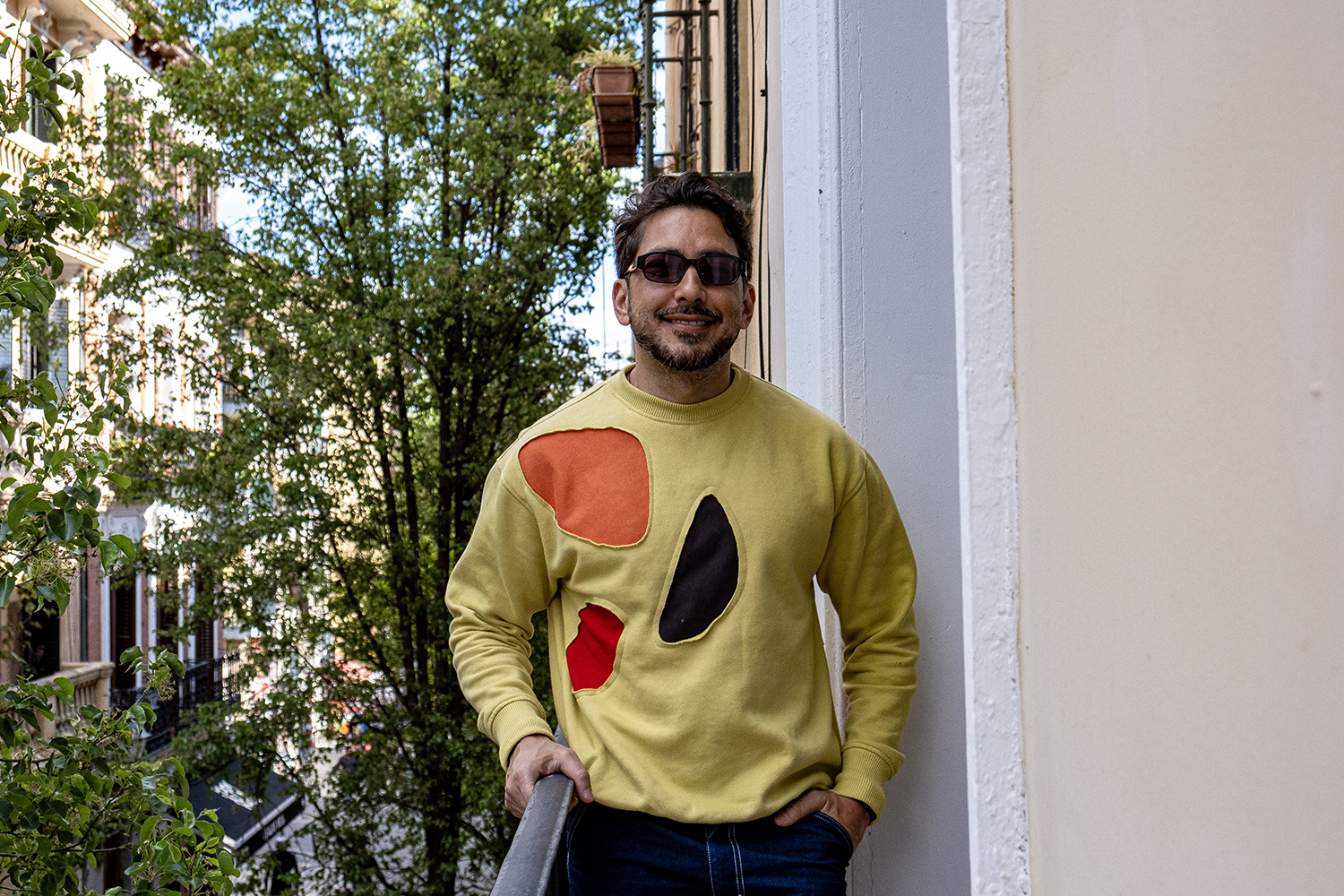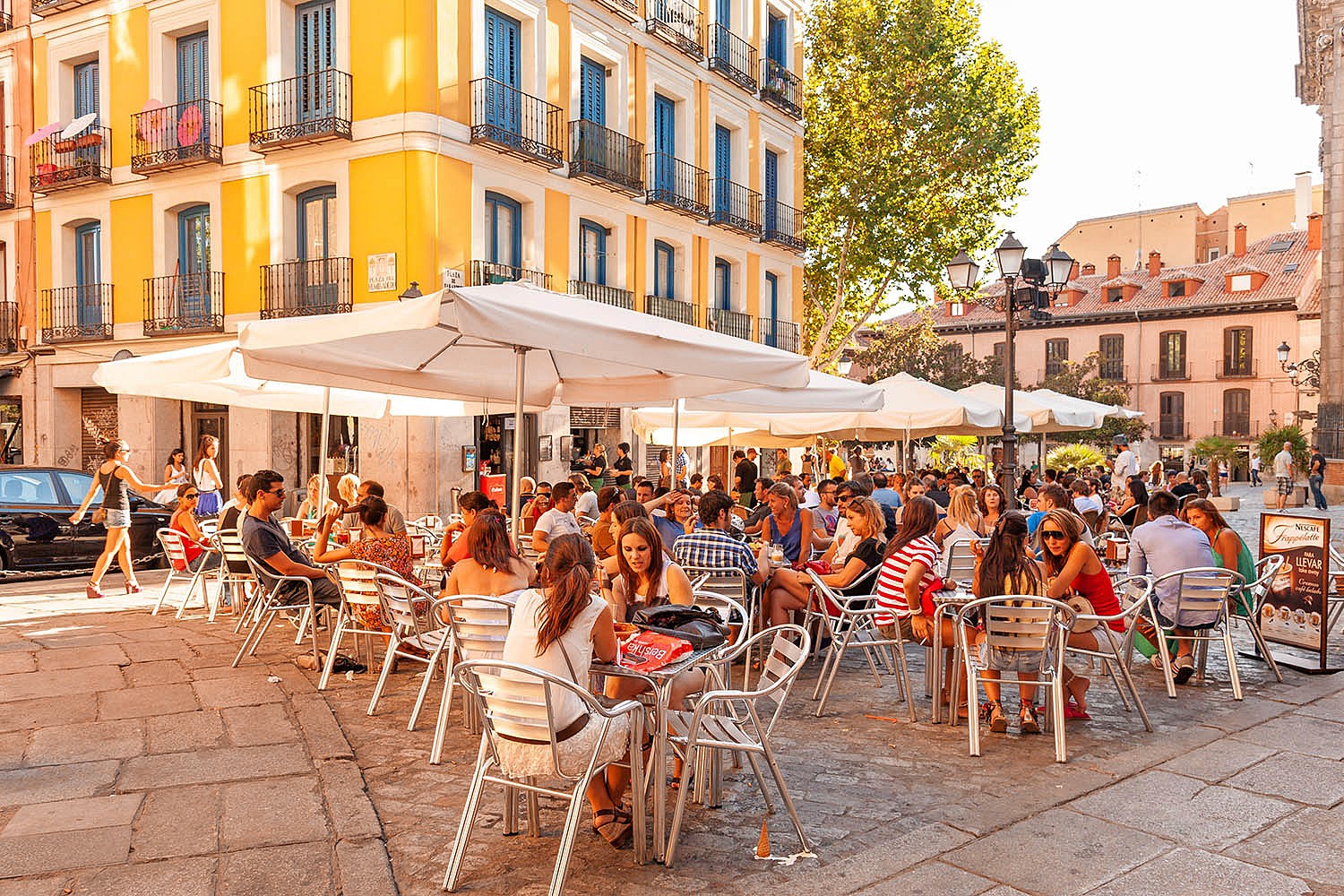The sun went down and one of Madrid’s better-known flamenco bars started blasting out rhythms of a more Latin persuasion. “At lunchtime they play flamenco. In the evening it’s salsa,” says Victor Rocha Laporta, a fashionably dressed Venezuelan estate agent.
He was in a good mood. The day before he’d sold an apartment to another Latin American Madrileño, Édgar Ramírez, the Venezuelan actor, who starred in the Oscar-nominated Emilia Pérez. “Latin Americans are everywhere,” he says. “I have more friends here than in Caracas.”
At the turn of the millennium, Madrid was made up almost solely of Spaniards. It had not long shaken off its past as the sleepy administrative centre of Gen Franco’s dictatorship. Now it is a cosmopolitan metropolis fast becoming a global city. A major reason is an influx of Latin Americans who for the first time number more than a million, according to December’s census. From a head count of just over 70,000 in 1998, they now make up one in seven Madrileños.
Venezuelan and Colombian restaurants compete each year to make the best arepa, a fried polenta snack. In chic Justicia, Mexican “concept stores” sell baggy jeans. In Salamanca one piano bar is jokingly known as “the Mexican embassy”. Under their influence, Spanish shops and restaurants increasingly forego the siesta, while customers suggest the city’s notoriously brusque waiters have discovered a soft side.
Spain’s economy is booming, growing by 3% per year, three times the European average. (France’s grew by 1% last year, Germany’s fell by 0.2%.) Economists say the cause is the addition of immigrants, of whom Latin Americans are the lion’s share. More than €66bn of Latin American money is now in Spain, according to a report last year.
The first arrivals were Ecuadorians staffing Spain’s doomed construction craze of the 2000s. Rocha Laporta is more typical of the new wave of the last decade: well-heeled, well-connected and wealthy.
They are fleeing unfavourable politics, spiralling inflation and drug crime, while investing in Spanish companies in sectors like technology, and moving their own offices to Madrid. Former Mexican president Enrique Peña Nieto has relocated to the city, and can be spotted browsing the city’s designer outlets. The owners of flats in Lagasca 99, a newbuild in the posh Salamanca neighbourhood billed as Madrid’s most exclusive residential building, have paid several million euros each. They include Colombia’s second richest man, banker Jaime Gilinski, and the righthand man to former Venezuelan leader Hugo Chavez’ banker, Tomás Niembro.

Rocha Laporta comes from the extended family of a late former president of Venezuela, Carlos Andrés Pérez. He arrived in 2020 after giving up hope of the fall of the prevailing communist regime, under Hugo Chavez’s successor Nicolas Maduro. A psychotherapist who dabbled in politics at home, Rocha Laporta entered the property trade after spying an opportunity to help other Latinos follow him. “[Madrid] has a very impressive infrastructure in terms of subways, trains, hospitals … and the streets – everything is so clean,” he says.
Edwin Rodríguez became the first Colombian chef in Europe to get a Michelin star in 2022, for his Madrid restaurant Quimbaya. He opened it in 2020 after aborting an attempt to open one in London after Brexit. Over maize bread and Colombian coffee, he says all of his staff are Colombian, while most of his customers are global. “Here in the dining room English is spoken all the time,” he says.
Having for decades sent emigrants abroad, Spain has welcomed new arrivals who share a language and Catholic religion. Some Latinos have Italian or other European passports, so can move in easily. Others from turbulent countries like Venezuela claim asylum. Prime minister Pedro Sánchez has just ended the golden visa scheme that allowed investors to gain residency. But Spain permits citizens of former colonies to apply for a Spanish passport if they spend two years living in the country.
Newsletters
Choose the newsletters you want to receive
View more
For information about how The Observer protects your data, read our Privacy Policy
Spanish banks have started offering catered services to rich Latinos whose credit records are sometimes not recognised. The conservative head of the Madrid government, Isabel Díaz Ayuso, last year announced tuition fees at public universities would be the same for Latin Americans as Spaniards. The “Mbappé” and “Beckham” laws, named after the current and former Real Madrid stars, offer tax breaks for new arrivals.
The mood in Madrid is decidedly optimistic. It has overtaken Barcelona as providing the largest portion of the Spanish economy, and just won the Grand Prix race from the Catalan city. Some seven million visitors come to Madrid’s famous art galleries each year. Sánchez plans to extend flight links to Latin America and expand the airport to serve 90million passengers a year. Under current levels that means it would overtake London Heathrow as Europe’s busiest.
Madrid has a very impressive infrastructure in terms of subways, trains, hospitals … and the streets – everything is so clean
Madrid has a very impressive infrastructure in terms of subways, trains, hospitals … and the streets – everything is so clean
Rocha Laporta
There has been little tension over Latino immigration. Far-right party Vox campaigns on culture war issues like abortion, though also calls for the expulsion of illegal immigrants. But last month tens of thousands protested over housing shortages.
Property prices and salaries are lower than in rival European capitals, though last year a Bloomberg City Tracker report found Madrid’s house prices had risen the fastest in Europe, their 10.6% annual increase fuelled by Latin American sales. Some suggest protesters could switch the focus of their anger from overtourism to expatriates.
Jacinto Soler-Matutes, a Spanish lawyer helping Latin Americans invest in Spain, said: “In the past Madrid had a big competitor, which was Miami, and I think Miami over the years became less friendly … There’s even more flow of Latin Americans into Spain [at the moment]. And Madrid in particular.”
Rocha Laporta is here to stay, although he has been surprised to find Madrid so laid back when it comes to work. “I have Spanish friends who when I ask them what they do they say, ‘Oh, I’m not doing anything at the moment,’” he says. “When I hear that I’m like, in Venezuela if you don’t do anything you invent a story!”
